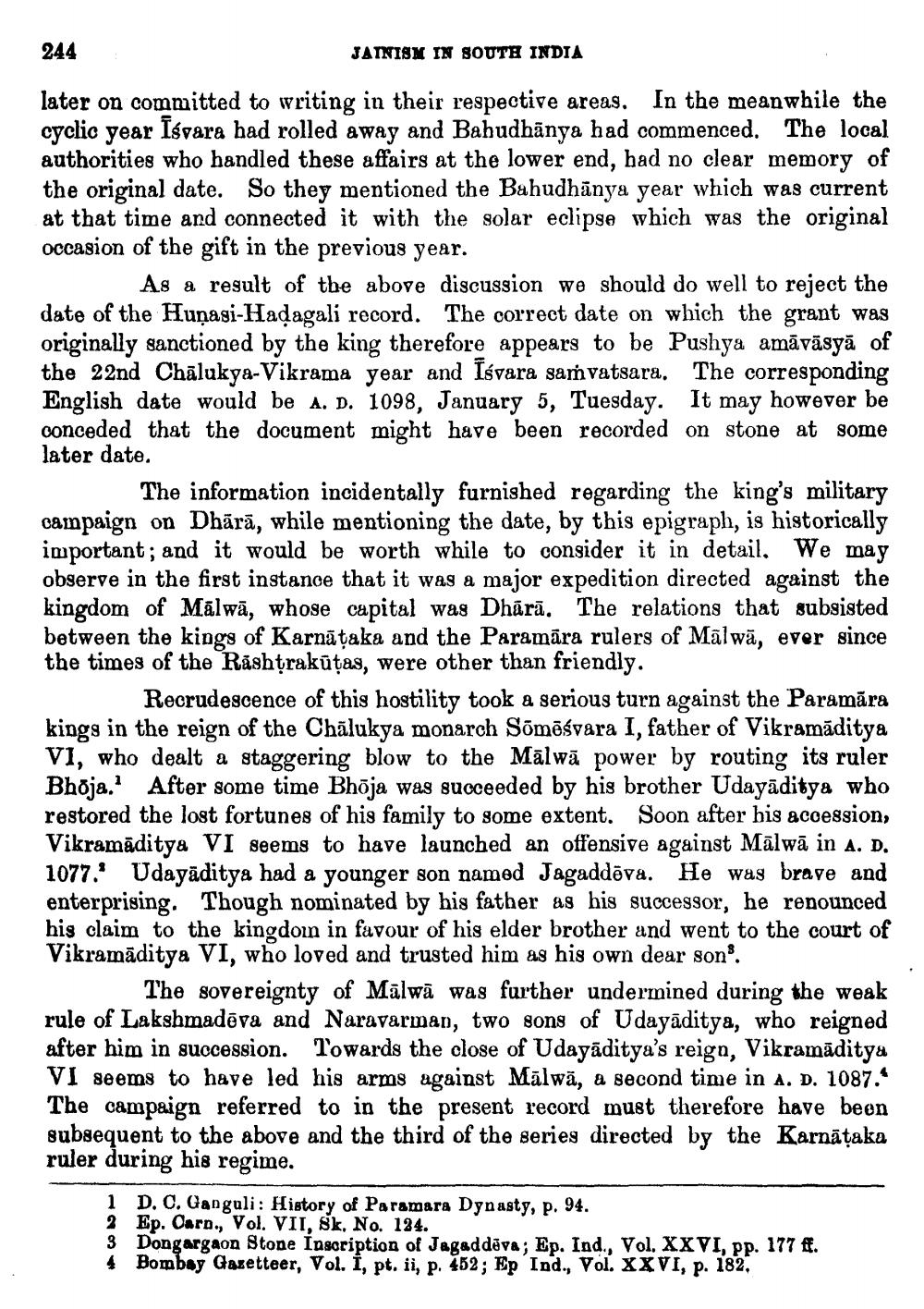________________
244
JAINISM IN SOUTH INDIA
later on committed to writing in their respective areas. In the meanwhile the cyclic year īśvara had rolled away and Bahudhānya had commenced. The local authorities who handled these affairs at the lower end, had no clear memory of the original date. So they mentioned the Bahudhānya year which was current at that time and connected it with the solar eclipse which was the original occasion of the gift in the previous year.
As a result of the above discussion we should do well to reject the date of the Huņagi-Hadagali record. The correct date on which the grant was originally sanctioned by the king therefore appears to be Pushya amāvāsyā of the 22nd Chalukya-Vikrama year and Isvara samvatsara. The corresponding English date would be A. D. 1098, January 5, Tuesday. It may however be conceded that the document might have been recorded on stone at some later date.
The information incidentally furnished regarding the king's military campaign on Dhārā, while mentioning the date, by this epigraph, is historically important; and it would be worth while to consider it in detail. We may observe in the first instance that it was a major expedition directed against the kingdom of Mālwā, whose capital was Dhārā. The relations that subsisted between the kings of Karnātaka and the Paramāra rulers of Mālwā, ever since the times of the Răshtrakūtas, were other than friendly.
Recrudescence of this hostility took a serious turn against the Paramāra kings in the reign of the Chālukya monarch Sõmāśvara I, father of Vikramāditya VI, who dealt a staggering blow to the Mālwā power by routing its ruler Bhoja. After some time Bhoja was succeeded by his brother Udayāditya who restored the lost fortunes of his family to some extent. Soon after his acoession, Vikramāditya VI seems to have launched an offensive against Mālwā in A. D. 1077. Udayāditya had a younger son named Jagaddēva. He was brave and enterprising. Though nominated by his father as his successor, he renounced his claim to the kingdoin in favour of his elder brother and went to the court of Vikramāditya VI, who loved and trusted him as his own dear sons.
The sovereignty of Mālwā was further undermined during the weak rule of Lakshmadēva and Naravarman, two sons of Udayāditya, who reigned after him in succession. Towards the close of Udayāditya's reign, Vikramāditya VI seems to have led his arms against Mālwā, a second time in a. D. 1087. The campaign referred to in the present record must therefore have been subsequent to the above and the third of the series directed by the Karnātaka ruler during his regime.
1 D. C. Ganguli: History of Paramara Dynasty, p. 94. 2 Ep. Carn., Vol. VII, 8k, No. 124. 3 Dongargaon Stone Inscription of Jagaddāva; Ep. Ind., Vol. XXVI, pp. 177 ff. 4 Bombay Gazetteer, Vol. I, pt. ii, p. 452; Ep Ind., Vol. XXVI, p. 182




